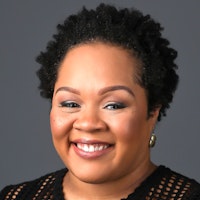
This isn't necessarily about what the law says, but rather what six people are telling us the law says.
Show Notes
The U.S. Supreme Court’s ruling in Dobbs v. Jackson Women’s Health Organization on June 24, 2022, has clear consequences: abortion is no longer a protected federal right in the U.S, and many clinics are shutting down. But the legal arguments the decision relies upon are much more complex, and those details often get lost in the headlines. The 2022 Aspen Ideas Festival brought together a conservative and a liberal constitutional scholar to break down the ruling, explain the nuances and speculate about how Dobbs might impact the legal future of other federal rights, such as contraception access and same-sex marriage. Law professor and writer Jeffrey Rosen, of the National Constitution Center and Yamiche Alcindor, the Washington correspondent for NBC News, moderate the conversation between Sherif Girgis of Notre Dame Law School and Melissa Murray of NYU School of Law. This is the second of three episodes about SCOTUS decisions and the future of the Court.
Explore
Related episodes


Alexander Hamilton called the U.S. Supreme Court the “weakest” branch of government, because it has no direct control over the military or budget. But the court’s recent cluster of decisions on hot-button issues has demonstrated that it can have an enormous impact on the American people and life in this country. Is the judiciary becoming more powerful, and therefore more d...


The U.S. Supreme Court overturned Roe v. Wade on June 24, 2022, revoking the federal right to an abortion. The Aspen Ideas Festival kicked off the next day, so we quickly shifted gears for the Opening Session and pulled together a stellar panel discussion that centered this groundbreaking legal decision. Laws banning abortion have already gone effect in several states as a...


The Supreme Court has made decisions on two landmark cases: political gerrymandering and the census.


Hear about the cases and history behind the Marriage Equality ruling.










